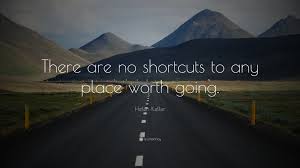Why Corruption will Never End!
There are always two choices. Two paths to take. One is easy. And its only reward is that it’s easy.
~Joanne Kathleen Rowling~
Every morning, I usually have the same routine as I drive to the office. I am not an early bird in respect to leaving home before the rest of the world wakes up in order to beat traffic so I would find myself experiencing some traffic. The traffic jam is usually when you see how patient (or not) Zambian drivers can be. There’s only a fraction of my journey to the office that goes against the flow of traffic and so I am usually in it almost 80% of the time. I get to see how almost everything gets thrown out the window when people want to get to their destination quickly.
I drove as I usually do every morning but decided to take a detour in hope that it would lead me to the office quicker. Unfortunately, this new route landed me in problems and I got to the office after 8 and vowed never to use it again. As we ‘sat’ in convoy, bumper to bumper I began to observe my other road users. The other lane was free but this was for vehicles that were moving in the opposite direction. Impatient drivers resorted to using this as a second lane and they would use this lane to drive all the way until they reached the junction and then would join the original lane in a quicker manner. As more and more drivers did this, the drivers who resorted to stay in the designated lane looked foolish because we had decided to wait our turn. It got me thinking of why corruption cannot cannot cease in Zambia. So I wondered in thought, I began to make a correlation with the traffic situation and corruption and this is what i discovered.
- Cutting Corners. Because of the impatience on the road, many drivers resorted to creating their own route and cut corners in order for them to get to their destination quicker. So what I noticed is that as they cut corners and opted for the shorter route they inconvenienced other drivers because they would have to come back into the original lane and this caused congestion, delaying everyone else even more and causing an even bigger traffic jam than before. They also inconvenienced the drivers who had the right of way to use that lane but then had to wait. In the end, the shortcut proved futile and it led them back to square one just like corruption. One can get ahead easily but there comes a time when this catches up with us and we find ourselves in a worse position that before taking that bribe.
 Being inconsiderate of others. I noticed that the other drivers did not take into account how their actions would affect the other motorists especially the ones whose lane they had borrowed and the motorists in the front who had been patient to wait their turn and endured the traffic. All they cared about was that they had to get to the front of the line first and did not care how this decision would affect the others. This is the true with corruption. When one accepts a bride or engage in a corrupt act, one is being inconsiderate to everyone else who is trying to do things the right way. When governments are corrupt, they are not being considerate to the future leaders and citizens of the nation.
Being inconsiderate of others. I noticed that the other drivers did not take into account how their actions would affect the other motorists especially the ones whose lane they had borrowed and the motorists in the front who had been patient to wait their turn and endured the traffic. All they cared about was that they had to get to the front of the line first and did not care how this decision would affect the others. This is the true with corruption. When one accepts a bride or engage in a corrupt act, one is being inconsiderate to everyone else who is trying to do things the right way. When governments are corrupt, they are not being considerate to the future leaders and citizens of the nation.- ‘Its not hurting anybody’. From the way these drivers would act, I got the impression that they think their actions wont hurt anybody. As long as they borrow the lane for a moment and get to the front without causing an accident, they are fine. But the reality is that they were hurting other road users because they were putting them at risk of having an accident. They were also inconveniencing the drivers who resorted to stay in the original lane because it was causing a bigger traffic jam in the front due to the fact that they were trying to return in the original lane. Corruption portrays similar traits. One may think they are not hurting anyone but eventually it erodes a system, a company or a country. When one is corrupt, it is hard to regain the trust that has been lost. I would not trust my life with any of those drivers.
I realised that eventually we all still got to our destinations and if we are late its more so because of our lack of planning to beat the traffic and not because there was traffic. Just because things are bad it does not justify a corrupt act. This quote says it all.

